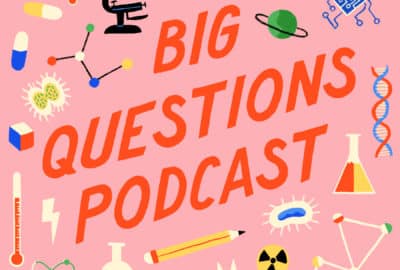Can you cure jet lag?
Wednesday 11th Jan 2023, 12.30pm
If our internal body clock is telling us it’s 3am, but the external environment is telling us it’s 12 noon, that’s called jet lag. It’s a mis-match between what’s going on inside our bodies and what’s happening outside. Those who have travelled abroad – particularly to somewhere in a significantly different time zone – will be familiar with the feeling, but it’s not just stepping off a plane that can cause it. ‘Social jet lag’ is a particular problem for shift workers, for example. An out-of-sync body clock can make us feel terrible, so, is there a cure for the condition on the horizon? We speak to neuroscientist Prof Aarti Jagannath from the Nuffield Department of Clinical Neurosciences about her work investigating potential drug treatments for jet lag.
Emily Elias: It’s January, and I’m tired. And despite not having been on a plane in ages, this feels an awful lot like jetlag. And that got us thinking.
On this episode of the Oxford Sparks Big Questions Podcast, we are asking, “Can you cure jetlag?”
Hello, I’m Emily Elias, and this is the show where we seek out the brightest minds at the University of Oxford and we ask them the big questions. And for this one we have found a researcher who loves to talk about sleep.
Aarti Jagannath: I’m Aarti Jagannath, and I’m an associate professor in neuroscience at the University of Oxford. And my research interest is circadian rhythms, or the 24-hour body clock.
Emily: Just to make sure that we start on the same page, what exactly is jetlag?
Aarti: Jetlag is a mismatch between our internal body clock’s time and what the environment is telling us the time is.
So, just to dial back a little bit to explain what the clock is. So, all life has evolved in this 24-hour rhythmic environment where the day is a completely different place from the night. So, what this mean is, whether you’re a bacterium or a plant or a human being, there are certain things that you’re better off doing during the day, such as photosynthesis if you are a plant, and certain things that are better off during the night, and in our case that might be sleeping.
And there is a clock that is encoded in our genes, and what this clock does is allow us to anticipate these daily rhythmic changes and prepare ourselves so we do the right thing at the right time of day. Now this clock relies on cues from the environment to tell it what the time is. So, in the case of humans, we’re relying on light information from the sun. And when that information does not match what your internal clock thinks the time is, that’s when we experience jetlag.
So, this could be because we’ve travelled to a new time zone, but it also could just entirely be because we’re seeing light at the wrong time of day. So, for example, if you’re a shift worker and you’re trying to spend as much time as you can asleep during the day and working at night, and the only time at which you see light is at night, then your clock will entrain to that night time environment.
On the other hand, if you’re a shift worker but you’re still seeing light during the day, such as when you’re driving to work or when you’re playing with your children off your shift, then there’s a huge amount of de-synchrony in terms of what your clock thinks the time is and what the clock thinks it’s getting signals for from the outside world telling it what the time is.
Emily: So, it doesn’t have anything to do necessarily with me getting off a plane, but how I actually live my life as a human?
Aarti: Absolutely. So being jetlagged is – I mean, I think the way you experience it most clearly is when you get off a plane, because there there is a clear mismatch in what your internal body clock thinks the time is and what the outside world is reporting the time is. On the other hand, if you were a shift worker and you were seeing light at the wrong time of day, such as bright lights in your factory or in your operating theatre at night, that is enough to confuse your clock into thinking there is a mismatch that it needs to account for. And that can also give you all of these symptoms of jetlag.
Emily: Is there a special name for it?
Aarti: So, there is social jetlag. So, social jetlag is where your work environment, or for that matter your social constraints, force you to live out of sync with your clock. And I think where you can see this quite clearly is with teenagers.
So teenagers naturally have a long clock. And what happens in teenagers is, because of the hormones, their clocks program their bodies such that they like to wake up later and they like to go to sleep much later. So they don’t get sleepy until very late at night. But they have to be at school early in the morning, they have to be at school at 8 o’clock, but at that time their clock is telling them that they actually want to be in bed and asleep, whereas their work environment is telling them that they have to be in the school, wide awake, prepared to receive and prepared to learn.
So that’s a clear example of where we’re experiencing social jetlag.
Emily: Okay, so, we know it exists. How do you then go about studying it?
Aarti: We study exactly what it is that the clock is looking for in terms of information from the environment, that is telling it what the time is. So how does this clock actually know what the time is in the outside world? What is relevant information? And how is that encoded?
So, to explain exactly what we do, the clock is a molecular clock, in that it is encoded in our genes. And how those genes are switched on and off is partially controlled by how much light we see. So, light information’s picked up by the eye, and that information is then sent to the brain. And in the brain there is a nucleus of cells called the suprachiasmatic nucleus. So that nucleus receives this information, and then when those cells fire, what they do is they change the timing with which these genes that encode the clock are switched on and off.
So what you get are these beautiful oscillations in the expression of these genes that then ties in with the light-dark cycle in the outside world. And what we study is how that information is actually encoded at the molecular level; so what kinds of signalling pathways are we talking about? How are these pathways switched on? Can we drug them? Can we trick the clock into thinking its seen light when it actually hasn’t? And what can we do when the clock is broken, essentially? If the clock is reporting the wrong time and the clock is not able to understand time cues correctly, what can we do intervene and then fix the situation?
Emily: What kind of groups of people would this really benefit, aside from, say, a shift worker, who’s exhausted by trying to keep it all together and keep all those plates spinning?
Aarti: A lot of the human population is actually experiencing circadian disruption in some form or the other. So, shift workers are probably one of the biggest categories of people that we could help.
Shift workers are, of course, trying to keep it all together because they are receiving all these conflicting signals, light at the wrong time of day, food at the wrong time of day, and they are a very, very large section of our population.
But, of course, there are other sections of the population that would benefit from compounds that can help fix a broken clock. So, for example, nearly all mental health conditions are comorbid with some form of sleep and circadian rhythm disruption. So, people with depression, affective disorders like schizophrenia, bipolar disorder, all of them have been studied in quite some detail in the past few years, and we’ve found that sleep and circadian rhythm disruption is prevalent in almost every mental health condition.
In fact, in some cases, such as with bipolar disease, it’s even prodromal. So, the disruption of sleep and circadian rhythms can happen even before the onset of other psychotic symptoms. And so, in these people, stabilising sleep and stabilising their clocks can be hugely beneficial. And there are some very discreet populations that would benefit from a drug that can fix a clock.
So, for example, people who are completely blind and have no light perception have no way of sensing what the time is in the outside world. So, in these people, if we had something that could act as a proxy for the effects of light on the clock, that would be incredibly useful.
So, what these people experience is what you could define as almost constant jetlag where, through the days, they just happen to cycle through time and are very rarely in sync with what would be our 24-hour world. And so this leaves them feeling constantly jetlagged, whereas if they were able to take a pill that would act as a proxy for light at the same time every day, what we could then have is a treatment that would then allow their clocks to entrain to a light-dark cycle. And what we now need are compounds with which to be able to do this.
Emily: How could you use drugs to affect the feeling or sensation of jetlag?
Aarti: So, when light hits the clock, what happens is that the neurons from your retina are synapsing with the neurons in your brain and sending this information to the brain. When these synapses fire, certain chemicals go up and down. And the way these chemicals go up and down and signal to one another is something that we can clearly quantify and define.
And so if we’re dealing with a chemical being released from the retina and switching on a receptor in the brain, what we can do is see if there are drugs that would target that receptor and fool that receptor into thinking it has seen light or it has not seen light.
So, for example, what we recently found is that adenosine, which is a molecule that we are all actually very familiar with because its receptors are the target of caffeine, is something that can signal to the clock.
So what I mean by that is when adenosine receptors are switched on, what that tends to do is to dampen down the amount of signalling that can happen in a cell. And what caffeine does is it blocks these receptors. So, by switching off adenosine receptors, you’re turning off that dampening drive, and so that signal from light then becomes much more powerful.
So, you can enhance the effects of light on the clock by using a compound such as caffeine. And, for that matter, what we also found is that adenosine receptors can also signal directly to the clock in the absence of light, and therefore by either switching on or off those receptors, you can fool the clock into thinking it has seen light.
Emily: So, could you create a drug that’s, like, caffeine based, that could cure jetlag?
Aarti: Exactly. So that is something we’re working on.
So, caffeine itself does effect the clock; we know that it does that in humans. So if you take the equivalent of two double espressos at night, that is enough to make the effects of evening light on your clock larger. So caffeine itself does have an effect, but caffeine comes with a lot of its own problems. One of the main ones actually being desensitisation.
The more you have caffeine, the more our bodies become desensitised to the effects of caffeine. So, for quite a while now, people have been targeting adenosine receptors to make more specific and more long lasting, long lasting in the sense of compounds that we do not desensitise to, equivalent of caffeine. And so what we found is that one such equivalent, a compound that acts like caffeine but isn’t caffeine, is something that would actually work very well at shifting the clock or making the effects of light on the clock much stronger.
Emily: What compound would that be?
Aarti: We’re working on an adenosine receptor antagonist, in the sense that it’s a drug that can switch off the effects of adenosine. So it’s a compound that blocks the adenosine in A1 and A2A receptors, and therefore it blocks that inhibitory drive that comes from adenosine on the clock.
Emily: Is that hard to do?
Aarti: Technically, actually, that is not, because adenosine receptors have been very well studied for multiple reasons. One of the main ones being that adenosine is something that signals sleep to our bodies.
So for the last 40 years people have been studying how to manipulate adenosine levels in the brain. And because we have this baseline of caffeine to work with, we know what kinds of chemicals work and what kinds of compound scaffolds to use. And therefore targeting something that looks like caffeine is actually a very workable solution, and that’s something we’re working on.
On the other hand, there are probably more effective and more specific ways to target the clock, and that involves studying compounds that are more specific to the exact pathways by which light hits the clock. That is slightly more difficult to do in the sense that it’s further away from the clinic; however, with more research and more specific tools, what we would probably get is a far more precision instrument with which to be able to manipulate the clock.
Emily: So how far away are you from getting a drug approved that could deal with this?
Aarti: We’re in that pathway somewhere. So, we have a spinout company known as Circadian Therapeutics, and what we are trying to do now is to get along this regulatory pathway that will allow us to enter clinical work with these compounds.
I think part of the difficulty in making a drug that targets the clock is we’re dealing with something that hasn’t actually been done before. So, defining these regulatory pathways is actually quite tricky; what we need are quantifiable measures of exactly what it is that has improved after you’ve taken this drug. So, for example, if you’re taking something to lower blood pressure, you can say, “I want to go from this number to that number, and if that has happened, I have a good drug”.
Whereas if we’re talking about something that fixes a clock, exactly what it is we have changed that is quantifiable, that has then led to a beneficial medical outcome, is something that the field is actually working on to now try and decide. So we all know, from multiple lines of research, that if you disrupt your circadian clock, there are lots of bad things that can happen, but if you say, “I want to treat circadian rhythm disruption, what it is that we’re going to measure at the other end”, and say, “This is my measure of a successful treatment”, is something that we’re trying to define.
Emily: This podcast was brought to you by Oxford Sparks from the University of Oxford.
With music by John Lyons, and a special thanks to Aarti Jagannath.
Tell us what you think about this podcast, you can find on us on social media. We are @OxfordSparks. You can also go to our website, oxfordsparks.ox.ac.uk, and pitch us your big question.
I’m Emily Elias. Bye for now.
Transcribed by UK Transcription.





